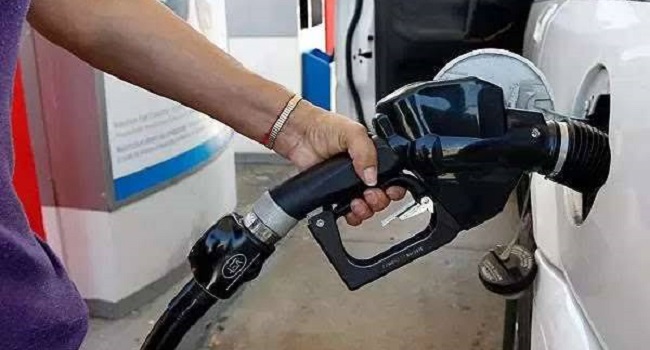Business
Petrol subsidy rises to N47.5 per litre as oil price climbs to $67.86 per barrel

The latest data from the Petroleum Products Pricing Regulatory Agency (PPPRA) has revealed that the subsidy per litre on Premium Motor Spirit (PMS) also known as petrol now stands at N47.5.
This is coming in the wake of increase in the open market price of the commodity, which soared to N180.78 on Monday 23rd December 2019.
On Thursday, Brent – the international benchmark against which Nigeria’s oil is valued – leapt to $67.86 per barrel, indicating a $0.66 dollar rise over the price posted the day before.
The development emerged just as the data gleaned from the PPPRA revealed that the Nigerian National Petroleum Corporation (NNPC) currently spends an average of N47.5 as subsidy on every litre of petrol.
The report equally reveals that the PPPRA’s PMS pricing templates for December 12, 16, 17, 18, 19 and 23 fixed the expected open market prices of petrol per litre at N172.92, N177.33, N177.32, N174.81, N177.92 and N180.78 respectively.
According to the templates, the ex-depot price for collection of petrol stood at N133.28 per litre, implying that the NNPC paid an average subsidy of N47.5 per litre on the product in the period under review.
READ ALSO: POS, instant payments transactions hit N97.32tn in 11 months
Industry experts are of the opinion that increase in crude oil prices will always trigger a corresponding rise in the amount of subsidy spent on petrol by the NNPC.
In October this year, the International Monetary Fund (IMF) had in its Regional Economic Outlook enjoined Nigeria to cut down its fuel subsidy in order to achieve more productive government spending.
“Fuel subsidies tend to be poorly targeted, foster over-consumption, curtail investment and maintenance in related sectors, and crowd out more productive government spending. Some countries need to take the opportunity afforded by low oil prices to reduce fuel subsidies to free up additional fiscal space (Cameroon, Nigeria, Senegal), as was done in Mozambique and South Sudan and is being pursued by Burkina Faso,” it stated.
Join the conversation
Support Ripples Nigeria, hold up solutions journalism
Balanced, fearless journalism driven by data comes at huge financial costs.
As a media platform, we hold leadership accountable and will not trade the right to press freedom and free speech for a piece of cake.
If you like what we do, and are ready to uphold solutions journalism, kindly donate to the Ripples Nigeria cause.
Your support would help to ensure that citizens and institutions continue to have free access to credible and reliable information for societal development.






















